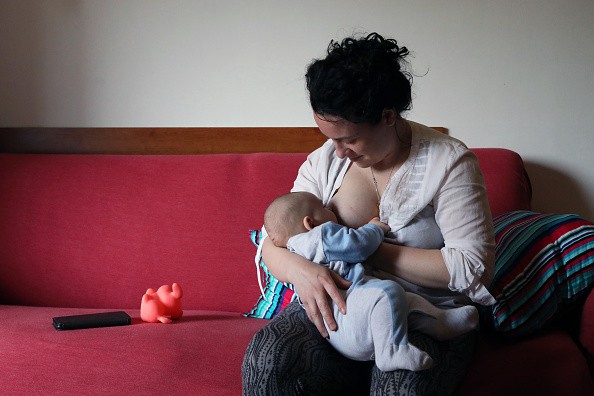Breastfeeding has been the recommended method of feeding a newborn baby. But what about during this COVID-19 pandemic?
When it comes to your baby's health, protecting your little one more likely means protecting yourself too. Though scientists are still learning about the new coronavirus through ongoing medical research, experts said from what they know, it is safe to breastfeed your baby.
But according to Healthline, the situation still calls for special precautions, especially when you have COVID-19 symptoms.
For your guidance, we will provide you with the most significant details you need to know about the novel coronavirus and breastfeeding your little one.
Does the coronavirus go through breast milk?
Good news! You will be relieved to know that researchers have not found SARS-CoV-2 yet in women's breast milk. However, the research is limited, as per Healthline.
According to two case studies, the new coronavirus was not found in the breast milk of two women who tested positive for COVID-19 in their last trimester. But the two studies are not enough to make a concrete conclusion.

Both women who underwent the case studies had healthy babies who did not contract the COVID-19 infection. The mothers had been isolated and avoided skin contact with their newborn babies until they recovered.
While experts are learning more every day about SARS-CoV-2, the virus that causes COVID-19, they said its closest relative, SARS-CoV, was also not detected in breast milk, but this is not conclusive.
What are the guidelines for breastfeeding?
Keeping breastfeeding for your baby is still the best amid the pandemic. However, particular guidelines could protect your baby against any form of the virus and prevent unexpected things from happening.
Researchers know that COVID-19 disease spreads specifically through tiny droplets in the air. The virus could spread when an infected person coughs, sneezes, or talks. The virus more likely moves into the nose before it causes symptoms.
Before getting the coronavirus symptoms or even if you never had symptoms, you could still pass the COVID-19 disease to your baby not by drinking breastmilk but through droplets from your nose and mouth or through touching your face with droplets.
You should follow these guidelines it you have tested positive for COVID-19, already experiencing the symptoms, or if you think you might have been exposed to the coronavirus:
- Wear a mask - Proper wearing of a mask during a breastfeeding session may prevent passing the virus to your little one. It is also recommended to wear a mask before and after you pick your baby or when handling the baby's feeding bottles and other items. Despite the uncomfortable feeling or distraction of your little one at first, wearing a mask could be the key to preventing your baby from being infected with the virus.
- Wash your hands - Frequent hand washing before touching your baby is advisable. It is also vital to wash your hands before and after touching your baby and the things he/she is using.
- Pump breast milk - Besides the new normal of using a face mask and frequent hand washing, you may also choose to pump your breast milk and have your partner or other family member feed your baby when you think you have COVID-19 symptoms. This is temporary and once you feel better and prove that you don't have COVID-19, you can go back to being hands-on in caring for your baby. Make sure to wash your hands and clean the skin area that the breast pump will touch. Sterilize the feeding bottles by placing it in boiled water. Use boil water or soap and water when disinfecting the breast pump parts.
- Disinfect surfaces - Anything that you and your baby use and touch must be cleaned and disinfected with an alcohol-based cleaner. You must also clean surfaces that you haven't touched but might have droplets on them.
Check these out:
3 Quick and Easy Ways to Make Lactation Foods for Breastfeeding Moms
Tips for Making Organic Baby Food Puree
7 Best Baby Food Delivery Services and Subscriptions
© copyright 2024 Food World News, a property of HNGN Inc. All rights reserved. Use of this website constitutes acceptance of our terms and conditions of use and privacy policy.



